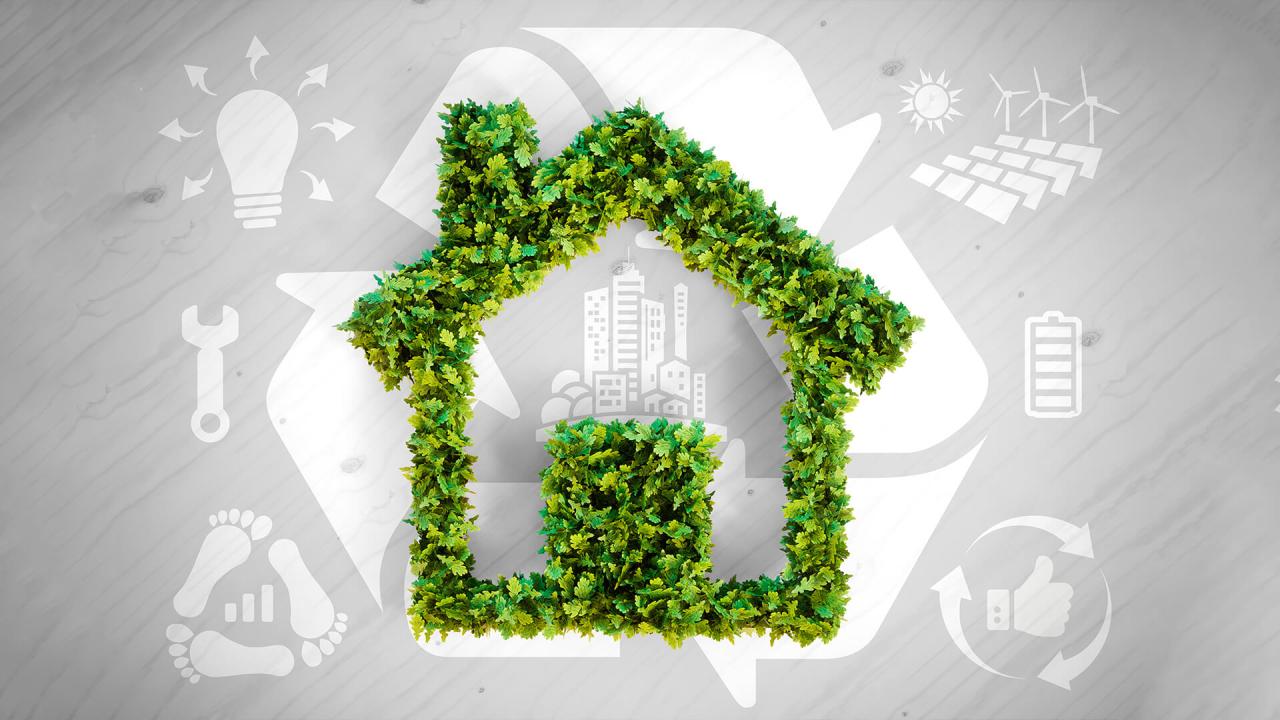The Impetus for PropTech Innovation

The surge in real estate technology isn’t a random occurrence; it’s a direct response to longstanding inefficiencies, emerging consumer demands, and the pervasive influence of digital transformation across all sectors.
A. Inefficiencies and Opacity in Traditional Real Estate
- Fragmented Data: Historically, real estate data has been siloed, difficult to access, and often inconsistent. This fragmentation made comprehensive market analysis, property valuation, and due diligence cumbersome and prone to errors. PropTech aims to centralize and standardize this information.
- Lengthy and Complex Transactions: The process of buying, selling, or leasing property often involves extensive paperwork, multiple intermediaries, and protracted timelines. This complexity leads to frustration, delays, and increased costs for all parties involved.
- Lack of Transparency: Traditional real estate transactions often lacked full transparency regarding pricing, commissions, and underlying property issues, leading to distrust and potential disputes. PropTech seeks to create more open and auditable processes.
- Limited Access and Information Asymmetry: Before the digital age, access to property listings and market insights was largely controlled by a few gatekeepers. This created an information asymmetry where agents held disproportionate knowledge compared to buyers and sellers.
B. Evolving Consumer Expectations
- Demand for Digital Convenience: Modern consumers, accustomed to instant access and seamless digital experiences in other industries (e.g., e-commerce, banking), expect the same level of convenience and speed in their real estate dealings. They want to browse, inquire, and transact online.
- Personalized Experiences: Data-driven technologies enable highly personalized property recommendations, tailored investment advice, and customized user interfaces, catering to individual preferences and needs.
- Visual Immersion: The rise of high-quality digital media and virtual reality has created a demand for immersive property viewing experiences, allowing prospective buyers to explore homes remotely before physical visits.
- Transparency and Control: Consumers increasingly desire greater control over their real estate journeys, with clear information about processes, fees, and market conditions, empowering them to make informed decisions.
C. Technological Advancements and Investment
- Big Data and AI: The exponential growth in data coupled with advancements in Artificial Intelligence (AI) and Machine Learning (ML) has made it possible to analyze vast datasets for predictive analytics, personalized recommendations, and automated valuations.
- Blockchain Technology: The distributed ledger technology underpinning blockchain offers the potential for immutable records, secure transactions, and enhanced transparency, particularly for property titles and smart contracts.
- Virtual and Augmented Reality (VR/AR): VR and AR technologies are becoming more sophisticated, offering realistic virtual tours, digital staging, and immersive architectural visualizations.
- Internet of Things (IoT): The proliferation of connected devices in homes and buildings provides real-time data on energy consumption, security, and maintenance needs, enabling smart building management and enhancing property value.
- Venture Capital Funding: A significant influx of venture capital investment into PropTech startups has fueled rapid innovation, allowing new companies to develop and scale disruptive solutions.
Key Areas of PropTech Disruption

PropTech is not a monolithic force but rather a collection of specialized innovations targeting different segments of the real estate value chain.
A. Property Search and Discovery
- Advanced Listing Platforms (Portals): Beyond simple photo galleries, modern listing platforms use AI-powered search filters, natural language processing for detailed queries, and provide rich data insights on neighborhoods, schools, and amenities. They offer a comprehensive digital hub for property exploration.
- Virtual Reality (VR) and Augmented Reality (AR) Tours: Prospective buyers can now take immersive 3D virtual tours of properties from anywhere in the world, often with interactive elements like furniture placement or material changes. AR applications allow users to visualize renovations or furniture in their own space.
- Drone Photography and Videography: Drones provide stunning aerial views of properties, showcasing their surroundings, land features, and proximity to amenities, offering a perspective impossible with traditional photography.
- AI-Powered Personalization: AI algorithms analyze user behavior and preferences to deliver highly personalized property recommendations, filtering out irrelevant listings and saving time for buyers and agents.
B. Transaction and Financing
- Online Transaction Platforms: Digital platforms now facilitate entire real estate transactions online, from initial offers and contract negotiations to e-signatures and secure document sharing. This significantly reduces paperwork and speeds up closing times.
- Blockchain for Title and Deeds: Blockchain technology has the potential to create an immutable, transparent, and secure record of property ownership (digital titles), drastically reducing the risk of fraud, simplifying title transfers, and potentially eliminating the need for intermediaries in some cases.
- Automated Valuation Models (AVMs): AI and machine learning are used to rapidly and accurately estimate property values based on vast datasets, providing quick appraisals for lenders, investors, and homeowners, though human appraisers still play a crucial role for complex properties.
- FinTech in Real Estate (Lending & Mortgage): Financial technology is streamlining mortgage applications, allowing for faster approvals, personalized loan products, and more transparent fee structures. Digital lenders are emerging that leverage data for quicker underwriting.
- Tokenization of Real Estate: Blockchain enables the fractional ownership of properties through digital tokens, making real estate investment more accessible to a broader range of investors and increasing liquidity for typically illiquid assets.
C. Property Management and Operations
- Smart Home and Building Technology (IoT): Connected devices and sensors enable remote control and monitoring of lighting, HVAC, security systems, and appliances. This enhances energy efficiency, improves tenant safety and convenience, and provides valuable data for predictive maintenance.
- AI-Powered Predictive Maintenance: AI analyzes data from IoT sensors to predict equipment failures or maintenance needs, allowing property managers to address issues proactively, reduce downtime, and save costs.
- Automated Property Management Software: Platforms automate tasks such as rent collection, lease management, tenant communication, maintenance requests, and accounting, significantly improving operational efficiency for landlords and property managers.
- Tenant Portals and Communication Apps: Dedicated apps and online portals allow tenants to pay rent, submit maintenance requests, communicate with property management, and access community information seamlessly, enhancing the resident experience.
D. Investment and Development
- Crowdfunding Platforms: PropTech has democratized real estate investment by enabling individuals to invest smaller amounts in large-scale projects (e.g., commercial developments, multi-family properties) through online crowdfunding platforms, broadening access to previously exclusive opportunities.
- AI for Market Analysis and Due Diligence: AI tools can rapidly analyze vast amounts of market data, identify emerging trends, assess risk factors, and evaluate potential returns for investment properties, aiding in more informed decision-making for developers and investors.
- Digital Twin Technology: In development, “digital twins” are virtual replicas of physical buildings or urban areas, allowing developers to simulate different design scenarios, analyze performance, and optimize construction processes before breaking ground.
- Construction Tech (ConTech): Technology like drones for site mapping, robotics for automated construction, and advanced project management software are improving efficiency, safety, and cost-effectiveness in property development.
Profound Impacts of PropTech on the Industry
The widespread adoption of real estate technology is having far-reaching consequences, reshaping roles, creating new opportunities, and shifting market dynamics.
A. Enhanced Efficiency and Speed
- Streamlined Processes: From search to closing, PropTech eliminates manual paperwork, automates routine tasks, and provides real-time updates, significantly speeding up transaction times and reducing administrative burdens.
- Reduced Costs: Automation and digitalization can lead to lower operational costs for real estate companies, potentially translating to reduced fees for consumers and increased profitability for businesses.
- Improved Data Accuracy and Accessibility: Centralized, standardized data ensures higher accuracy, reduces errors, and makes critical information more readily available to all stakeholders, fostering better decision-making.
B. Increased Transparency and Accessibility
- Democratization of Information: PropTech empowers consumers by providing unprecedented access to market data, property details, and transaction histories, leveling the playing field and reducing information asymmetry.
- Wider Investment Opportunities: Crowdfunding and tokenization open up real estate investment to a broader base of investors who previously lacked the capital or access to participate in large-scale projects.
- Reduced Fraud and Increased Trust: Technologies like blockchain enhance the security and integrity of transactions, reducing the potential for fraud and building greater trust among parties.
C. Evolving Roles and New Business Models
- Shift for Real Estate Agents: The role of the traditional real estate agent is evolving. While some routine tasks are automated, agents can now focus on high-value activities like negotiation, personalized client service, and strategic advice, acting more as consultants.
- Emergence of iBuyers: Companies (iBuyers) that use algorithms to make instant cash offers for homes, then quickly resell them, are disrupting traditional selling models, offering speed and convenience for a fee.
- Growth of Data Analytics Specialists: The demand for data scientists, AI specialists, and analysts with real estate expertise is growing, as companies seek to leverage insights from vast datasets.
- New PropTech Startups: The fertile ground of unmet needs and technological capabilities continues to spawn new PropTech startups, bringing fresh innovations and challenging established players.
Challenges and Strategic Responses in the PropTech Era
Despite its immense potential, the transition to a technology-driven real estate industry presents its own set of challenges that require careful navigation.
A. Challenges
- Data Security and Privacy Concerns: The collection and use of vast amounts of personal and property data raise significant concerns about cybersecurity, data breaches, and ensuring individual privacy. Robust security protocols and regulatory frameworks are essential.
- Digital Divide: Not everyone has equal access to technology or digital literacy. This can create a digital divide, potentially excluding certain segments of the population from the benefits of PropTech innovations.
- Regulatory Adaptation: Existing real estate laws and regulations often lag behind technological advancements. Governments and regulatory bodies face the challenge of adapting frameworks to accommodate new business models and technologies (e.g., blockchain for titles, crowdfunding).
- Resistance to Change: Traditional players in the real estate industry, including long-standing agencies and agents, may be resistant to adopting new technologies due to inertia, fear of job displacement, or lack of understanding.
- Integration Complexities: Integrating disparate PropTech solutions and platforms can be complex, requiring significant investment in IT infrastructure and skilled personnel to ensure seamless workflows.
B. Strategic Responses
- Embrace Continuous Learning: Real estate professionals must commit to continuous learning and upskilling to understand and effectively utilize new PropTech tools and platforms.
- Strategic Partnerships: Established real estate companies should consider strategic partnerships or acquisitions of PropTech startups to integrate innovative solutions into their offerings and remain competitive.
- Focus on Customer Experience: While technology automates tasks, human connection and personalized service remain crucial. PropTech should be leveraged to enhance, not replace, the customer experience.
- Invest in Cybersecurity: Companies handling sensitive real estate data must make robust investments in cybersecurity infrastructure and practices to protect against breaches and maintain client trust.
- Advocate for Progressive Regulation: Industry players should engage with policymakers to advocate for regulatory frameworks that encourage innovation while ensuring consumer protection and market stability.
The Future of Real Estate
The trajectory of real estate technology points towards an increasingly interconnected, data-driven, and intelligent industry.
A. Hyper-Personalized Experiences
- AI-Driven Home Matching: Expect even more sophisticated AI that can not only match properties to buyers but also predict future needs, recommend neighborhoods based on lifestyle data, and even suggest optimal renovation plans.
- Virtual Concierge Services: AI-powered virtual assistants will likely provide seamless support throughout the home buying, selling, or rental process, answering queries, scheduling viewings, and guiding users through complex steps.
B. The Rise of Integrated Platforms
- End-to-End Ecosystems: The future will likely see fewer fragmented solutions and more integrated platforms that handle every aspect of the real estate journey, from initial search and financing to transaction management and ongoing property maintenance.
- Standardized Data Protocols: Industry-wide adoption of standardized data formats and APIs (Application Programming Interfaces) will enable seamless data exchange between different platforms, fostering greater collaboration and innovation.
C. Sustainable and Resilient PropTech
- Green Building Tech: PropTech will increasingly focus on technologies that promote sustainability, including advanced energy management systems, smart materials, and tools for monitoring and optimizing environmental performance of buildings.
- Climate Risk Assessment Tools: AI and geospatial data will provide more sophisticated tools for assessing climate-related risks (e.g., flood, wildfire, extreme heat) for properties, influencing investment decisions and insurance.
D. Blockchain’s Full Potential
- Seamless Global Transactions: As regulatory frameworks mature, blockchain could enable near-instantaneous, cross-border property transactions, removing many current barriers and costs.
- Automated Property Management via Smart Contracts: Smart contracts on the blockchain could automate lease agreements, rent payments, and maintenance triggers, executing terms automatically when conditions are met.
Conclusion
Real estate technology is unequivocally disrupting the property market, ushering in an era of unprecedented efficiency, transparency, and accessibility. From revolutionizing property search and streamlining transactions to automating management and democratizing investment, PropTech is reshaping established norms and creating a more dynamic industry. While challenges related to data security, regulation, and adaptation persist, the overarching trend points towards a future where technology is deeply embedded in every aspect of real estate. For individuals and businesses alike, embracing these innovations, understanding their potential, and strategically adapting will be paramount to thriving in the rapidly evolving landscape of the digital property market. The disruption is not just underway; it’s accelerating, promising a more connected and intelligent real estate world for all.













